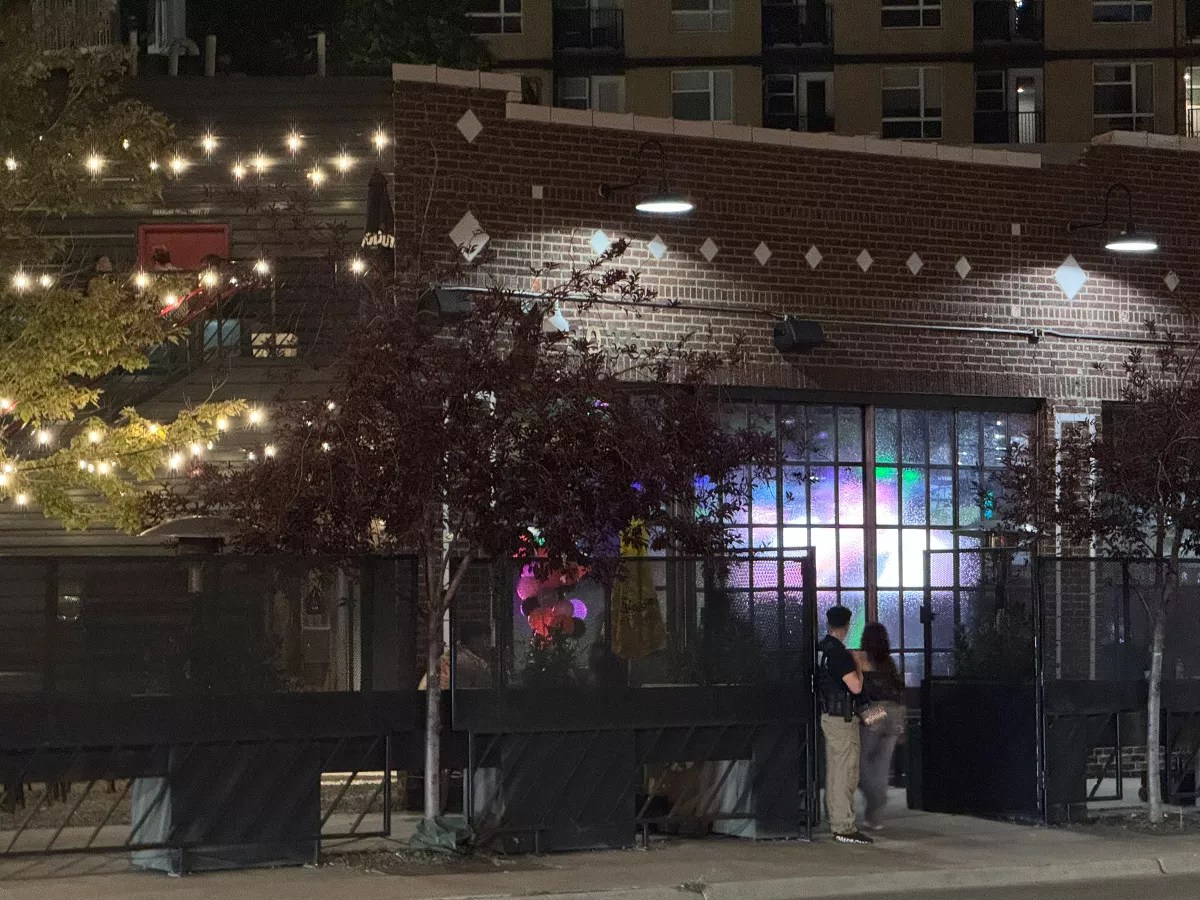
Bennito L. Kelty

Audio By Carbonatix
After fifty years as a gay bar, the former Triangle Bar building at 2036 Broadway now hosts Olympus Discotheque, a Latin club. Owner Adoney Varela says he’s hoping to offer a broad mix of Latin genres, like reggaetón, banda and salsa alongside EDM and Top 40 hits.
“We’ve got a good venue,” Varela says. “We’re open for everybody to come here and have a fun time and enjoy the experience of being here and knowing there’s an actual Hispanic, Latino club doing things different than what Denver has experienced.”
Varela, who was born in Honduras and grew up in Los Angeles, moved to Denver 24 years ago and started making cabinets for a living. His dream was to have a Latin club, however, and for several years he ran Medusa’s nightclub on Federal Boulevard.
Medusa’s closed last year; Adams County shut it down because patrons were causing problems in the surrounding neighborhood, Varela says. So he started “knocking doors” to find a place where he could finally open a club. That’s how he found the Triangle.
The building is still owned by Scott Coors, who closed the Triangle Bar in October. At the time, Coors said that homeless encampments had suffocated business. But that was before the city conducted several sweeps of the area, and Varela says he hasn’t encountered any issues. While he and his employees have had to shoo away people in the alley behind the bar, customers aren’t worrying about their safety.
“From our experience, we haven’t had any of those problems,” he says. “There is the issue like anywhere in downtown with the homeless population, but that is not up to us to come and handle that part. For us, people come in here having fun, knowing we’re here at this great location. Regardless of where you go, I think you’re going to encounter the homeless community.”
Varela started negotiating with Coors in February, then opened Olympus in May. He’s still finishing renovations; in the next few days, he plans to finally install an Olympus sign. But for now, the building still has Triangle Bar logos and art.
The building’s notoriety has been an advantage, Varela says, since “half of Denver knows this location.” But he admits that “we’ve got to market it better” and let people know that a new club has moved in.
“It’s hard to compete with the other clubs that already have a name out there,” Varela notes. “They’ve been in this neighborhood for many, many years. And downtown markets are really hard.”
The popular La Rumba is just a mile or so down Broadway, at 99 West Ninth Avenue, and La Diabla, which opened in December at 1512 Curtis Street (and has no relation to La Diabla Pozole y Mexcal on Larimer Street), is even closer – though it’s situated in the middle of downtown construction.

Adoney Varela runs the new Olympus Discotheque at 2036 Broadway, the location of the former Triangle Bar, and his son Adoney (left) runs the bar.
Bennito L. Kelty
But the triangular building has some advantages the others don’t, including a rooftop and a large ground-floor patio. “We’re one of the lucky guys to have a rooftop with a patio,” Varela says. “If you ask me, if there’s any place with a rooftop, I’ll go to that place, get some fresh air at night.”
Medusa’s was also a Latin club with a subtle Greek mythology theme. At Olympus, Varela hopes to repeat what he offered at Medusa’s “on a larger scale” by offering more genres throughout the 7,800-square-foot, three-floor building.
He plans to dedicate the top floor to salsa and bachata, and to put an opening in one wall so that people can head out to the adjacent patio, where there will be a small bar and fireplace.
The basement is a lounge with sofas and another small bar. That area is already open on Saturdays, but Varela wants to tear down a wall to create more space. The underground lounge currently plays the music that’s also heard on the main floor, which switches from night to night, though Varela says he might soon devote the basement to reggaetón.
Meanwhile, he’s tinkering with theme nights on the first floor. Thursdays have a tropical feel, with salsa, bachata, merengue and cumbia, but “we’re not getting much of a response,” he says. He plans to switch that over to EDM next week.
“To run a place like this, with people only coming on three nights, is hard,” he says. “Customers are very picky regardless of what you do, and it’s hard to please everybody.”
Fridays usually feature live musicians performing banda and norteña, popular genres in northern Mexico that call for big brass ensembles; aside from Stampede in Aurora, few nightclubs in the metro area offer that music live. Meanwhile, Saturdays are an “open format,” Varela says, with no set theme, but the DJs usually play reggaetón and Top 40 music.
Varela has been trying to decide what to offer on Sundays; he’s leaning toward making it an LGBTQ night that would repeat the vibe of the old Triangle Bar. “We can bring that back and bring some of those people back,” Varela says. “I don’t think they wanted this to go away, because a lot of that community lives in these neighborhoods. They don’t want to go across town to party.”
The club will also host parties after Broncos games and big soccer games, along with after-parties for concerts like the upcoming Peso Pluma show at Ball Arena.
Varela is eager to grow the crowds, and thinks they’ll come once he’s figured out the right entertainment and has finished renovations.
“It’s clean, a lot of space, a lot of rooms to explore, the patio, the rooftop, the basement,” he says. “It might take a little bit, but I think we’re going to get there.”